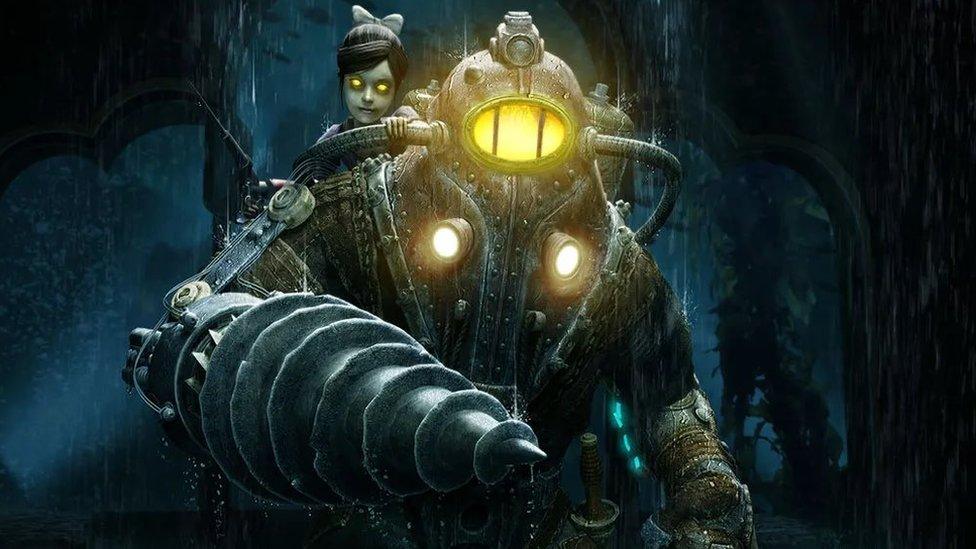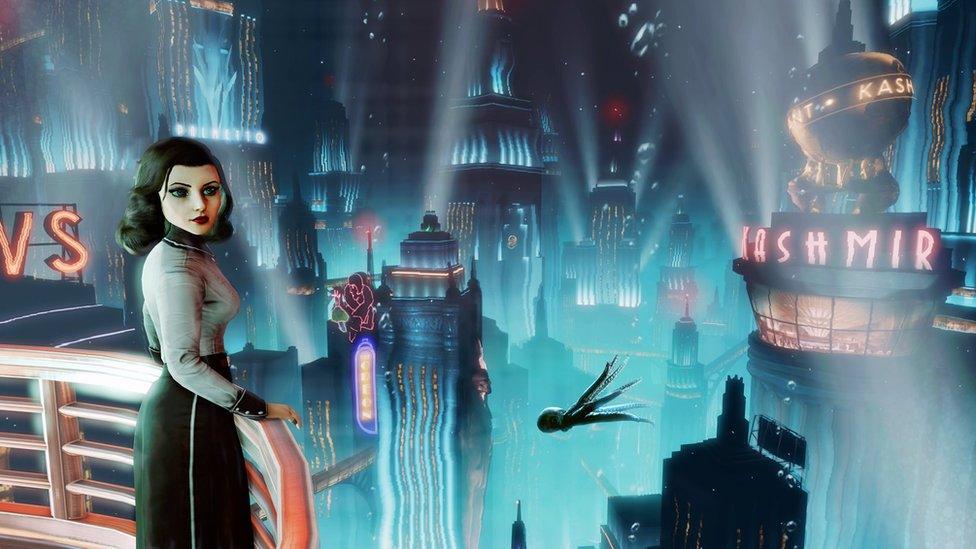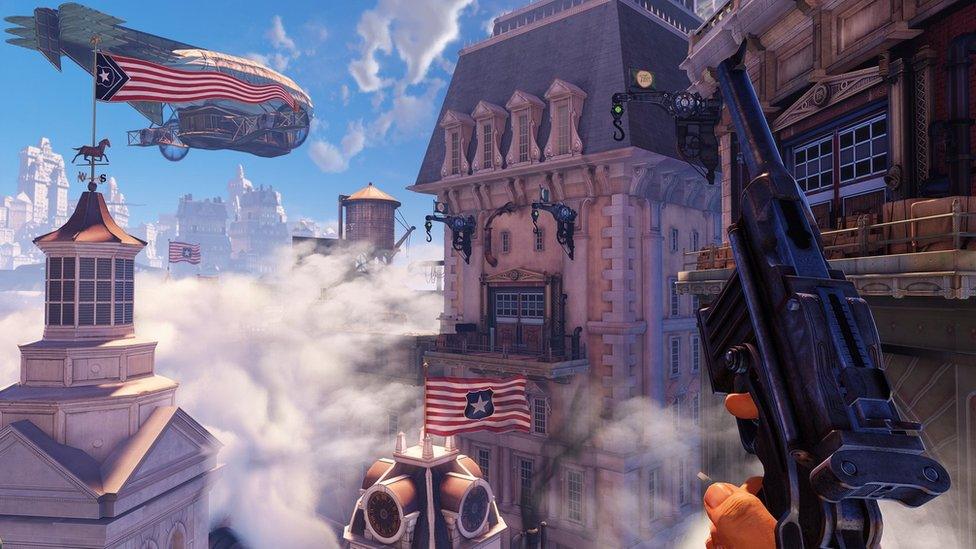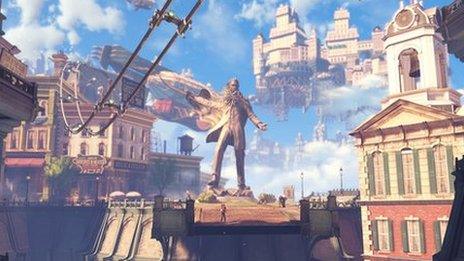BioShock returns for more gene-enhanced gaming
- Published

The publisher of the much-lauded BioShock video games has announced that a new title is in development.
Past games dealt with topics including human genetic modification, Ayn Rand's philosophy of individualism, racism and quantum physics, in sci-fi inspired alternative versions of history.
The series' fate had been in doubt after its creative director unexpectedly shut the studio involved in the last game five years ago.
But a new team is taking charge.
Ken Levine, the designer behind the first and third entries in the series, will not be involved.
Instead, Take-Two Interactive Software said Kelley Gilmore will head up the project. She will serve as chief of Cloud Chamber - a new studio based across offices in Montreal, and near San Francisco.
Ms Gilmore has previously worked on the Xcom and Civilisation franchises, external released by the same parent company.
In a press release, Take-Two noted that she is the first woman to launch and lead one of its development studios, external.
Sea and sky
The original BioShock trilogy sold more than 33 million units, according to the market research firm IHS Markit.
Their Big Daddy characters in Steampunk-inspired diving suits and accompanying glowing-eyed Little Sisters became iconic figures. At one point a spin-off movie was in the works under Pirates Of The Caribbean director Gore Verbinski.
But apart from remastered versions of the original games, no new content has been released since the second episode of Burial At Sea in 2014 - a DLC (downloadable content) add-on to BioShock Infinite that returned players to the underwater city of Rapture.

Rapture was notable for its Art Deco-inspired underwater design
"It's surprising the company has waited so long to start work on a new instalment," commented Piers Harding-Rolls, head of games research at IHS Markit.
"BioShock games are well-loved by gamers for their unique setting, storyline and aesthetic.
"And because this is a few years out from completion, it is likely to play an important role in driving adoption of next-generation consoles."
The first two games were set under the sea, and the third in the sky, so fans of the games will be keen to know where the fourth will be set.
But Ms Gilmore is currently playing her cards close to her chest.
"Environments have played a critical role throughout BioShock history and are incredibly important to the gameplay experience," she told the news site GamesRadar, external.
"There are many creative directions to explore, but you'll have to wait a bit longer to see where we go next."

Analysis: Marc Cieslak, BBC Click

BioShock Infinite was set in a flying city
The original BioShock, with its musings on a techno-utopian society inspired by Ayn Rynd's survival-of-the-fittest hyper-capitalist writings, combined a cracking first-person campaign with a healthy dose of body horror.
It represents a high-water mark in narrative video games and is rightly regarded a modern classic.
Taking place in the undersea city Rapture, the game was set in an alternate version of the 1960s. It laid narrative breadcrumbs for the player, which ultimately built to a twist reveal worthy of the very best high-end TV drama.
Two sequels followed, with the most recent, BioShock Infinite, transporting the action to 1912 and the flying city of Columbia.
Critically acclaimed, its exploration of race and class further pushed the boundaries of video game storytelling and the kinds of subject matter video games could tackle.
BioShock Infinite, in particular, was influenced by the political climate in which the game was developed - including the rise of the Tea Party in the United States.
With a new BioShock game in the works, it's a safe bet that the troubled times we live in now will provide more than enough raw material for the developers to weave into their story.
- Published26 March 2013
